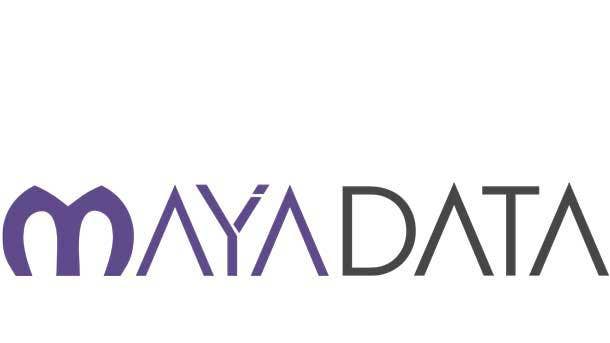The 10 Hottest Data Storage Startups Of 2019
CRN looks at 10 startup storage vendors that in 2019 made headlines as they came out of stealth, unveiled their first storage products, or pursued acquisitions.

The Hunt For Success: Investment In Storage Startups Continues
See the latest entry: The 10 Hottest Data Storage Startups of 2022 (So Far)
Business users and investors continue to fuel the hopes and dreams of entrepreneurs looking to cash in on the all-important storage industry with the development of new technologies for general purpose storage, storage for specific applications, or storage for the clouds.
The storage industry continues to be characterized as one in a state of constant change, an industry where it sometimes feels that two new vendors pop up for every vendor that closes or gets acquired. No matter how many storage vendors get acquired or get lost in the dust, and no matter how few actually make it to the IPO stage, there is one constant: More storage-focused companies will get investment dollars and try for glory.
Here's a look at 10 independent startup storage developers that only recently either came out of stealth or introduced their first products.

Clumio
Co-founder and CEO: Poojan Kumar
Clumio in August announced its entry into the SaaS-based data protection market with the unveiling of a huge $51-million round of funding, and followed up three months later with an even bigger $135-million funding round. Santa Clara, Calif.-based Clumio provides secure enterprise backup-as-a-service aimed at consolidating data protection across data centers and public clouds with no hardware or software to manage. It automatically expands and contracts resources as needed, and lets customers define backup policies and monitor compliance to those policies in real time. It also offers always-on end-to-end encryption of data.

Formulus Black
COO: Jing Xie
Formulus Black, a storage startup built upon what used to be known as Symbolic IO, in March 2019 re-entered the storage stage to introduce new technology, Forsa, that enables any application to run 100 percent in server memory without any modifications. The Jersey City, N.J.-based vendor's Forsa runs on commodity server hardware configured with Intel Skylake, Broadwell, CascadeLake, or Haswell processors. It uses what Formulus Black calls memory amplification, which translates standard server DRAM memory, the fastest kind of memory, into Formulus Black bit markers, which are managed in place of the memory itself. And because DRAM is non-persistent memory, Forsa requires SSD-based external storage to protect data in case the server goes off-line. The company in July introduced version 3.0 of Forsa, and in September started working with Intel to develop high-performance persistent memory solutions.

Grax
CEO: Joe Gaska
Grax is taking data protection to a new level with technology that captures an irrefutable and recoverable record of every single change that happens to data over time. The Boston-based company claims this lets businesses keep their backup and archive data in their own storage environment while making historical data available for analytics alongside live data, creating a unified data infrastructure that helps businesses meet regulatory requirements and quickly react to new patterns that emerge in their business. The company in October unveiled a $12-million series A funding round from Volition Capital.

MayaData
CEO: Evan Powell
MayaData, San Jose, Calif., is the developer of the MayaData Data Agility Platform, or MDAP, which brings together OpenEBS, an open source container-attached storage technology, with its own applications and proactive support. OpenEBS runs on Kubernetes to deliver storage services to Kubernetes workloads. MDAP is available in both cloud-based (MDAP SaaS) and on-premises (MDAP On-Prem) versions to help clients deploy and operate stateful workloads using Kubernetes. The company's MayaStor technology for containerizing NVMe subsystems was added to the open source OpenEBS community.

Molecula
CEO: H.O. Maycotte
Molecula in May launched with technology it called the Molecula Data Virtualization Platform which the Austin, Texas-based company claims provides instantaneous, secure access to large, fragmented, and geographically dispersed datasets to support machine learning and artificial intelligence workloads. The company came out of the Pilosa open source platform for accelerating continuous analysis across multiple massive data sets. With Pilosa as its core, the Molecula Data Virtualization Platform offers businesses enterprise-grade services including data management, data pooling, machine learning add-ons, monitoring, and executive reporting.

Pavilion Data Systems
CEO: Gurpreet Singh
Pavilion Data Systems is among the first to develop NVMe over Fabric, or NVMe-oF, technology purpose-built to utilize current and future memory-class media. The San Jose, Calif.-based company in May unveiled version 2.2 of its Pavilion Data platform which features increased write performance to as high as 90 GBs-per-second, with write latency as low as 40 microseconds using RAID-6 protection. It also offers fast SWARM recovery for RAID rebuilds and consistency groups for snapshots. With SWARM, a single SSD can be rebuilt at a rate of under 5 minutes per terabyte, the company said. The platform includes a suite of data management capabilities including thin provisioning, snapshots, and data at rest encryption.
Pavilion Data Systems in August raised a new $25-million funding round, and in November said its array received VMware-ready status.

Racktop Systems
CEO: Eric Bednash
Racktop Systems, Fulton, Md., was formed to combine data storage with advanced security and compliance in a single platform. The company's BrickStor NAS platform includes embedded security, compliance, and encryption to protect data where it is located. The company in March closed a Series A funding round to the tune of $15 million, funding it said will help accelerate development of its sales channel and product development.

StorCentric
CEO: Mihir Shah
StorCentric is a most unusual storage startup. It came out of stealth last year by announcing the acquisition of two legacy storage vendors, prosumer-focused storage developer Drobo and midsize and enterprise storage developer Nexsan. In July of this year, StorCentric followed up with the acquisitions of SMB data protection vendor Retrospect and flash storage developer Vexata. The company expects acquisitions to continue being its primary driver for growth in the future.

StorOne
CEO and co-founder: Gal Naor
StorOne is a New York-based developer of software-defined storage technology that can be used for an all-flash or hybrid array, virtual storage, secondary storage, or cloud storage, and that supports all protocols including block, file and object storage. ) – all powered by the same software. The company claims its StorOne S1 software works with any hardware, and it is future-proof. StorOne in June claimed its software reached a half-million IOPs when configured with 24 Seagate SSDs with all enterprise-class features turned on in a two-node VMware cluster. July saw the company introduce S1-as-a-service which integrates its S1 storage services with hardware from Dell Technologies and Mellanox.

Vast Data
CEO and founder: Renen Hallak
New York-based storage technology developer Vast Data early this year unveiled a new $40 million funding round and introduced its Universal Storage system, aimed at combining high performance and low-cost technologies to develop exabyte-scale storage with the cost of traditional storage systems. Vast Data is doing this with a combination of three technologies: high-performance NVMe-over-Fabric that allows CPUs to directly access the internal SSDs, the use of consumer-grade QLC (quad-level cell) flash technology, and the use of 3D Xpoint non-volatile memory technology. It is targeted at high-performance workloads in such areas as artificial intelligence, machine learning, data analytics, and deep learning. The company in September launched version 2.0 its Universal Storage platform with expanded support for AI applications, continuous snapshots, and asymmetric cluster expansion.